Description
Name in North American Boletes: Suillus grevillei
Genus: Suillus
- Genus: Boletus
Species: clintonianus
- Species 2: grevillei
- Species 3: proximus
- Species 4: elegans
Common Name: “Larch Suillus”
- Common Name 2: “Tamarack Jack”
Tells: Pale- to orange-yellow cap flesh stains pinkish brown. Viscid cap. Cap-colored stem usually has yellow band above the ring & white below. Ammonia/KOH on cap. Grows w/larch.
Other Information: Cap flesh may taste metallic, and stem flesh may stain bright green from the base up. Cap color varies from yellow all the way to chestnut brown, and can even be bright red if it’s never seen the light of day. Yellow pores age brown & stain red-brown. Suillus luteus is similar grows w/pines.
Science Notes: This used to be known by the European name Suillus grevillei. The species name was changed after DNA evidence showed that the North American version is genetically distinct.
Edibility: Good. Well… sort of. “So-so” would be more accurate, and many people prefer to peel of the cap skin before eating fresh specimens.
CHEMICAL TESTS:
- NH4OH (Ammonia): Cap skin turns dark green to olive-black. Cap flesh turns red/pink before shifting to blue and then blue/green.
- KOH: Cap skin turns greenish black. Cap flesh flashes pink and then immediately shifts to blue and/or bluish black.
- FeSO4 (Iron Salts): Cap flesh turns olive-brown to olive-black.
Links:
 |
584 |  |
285 |  |
238
(grevillei) |
 |
335
(grevillei) |

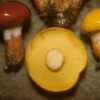
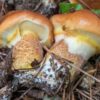
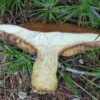
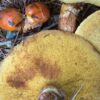
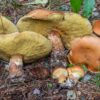
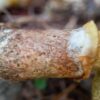
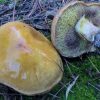
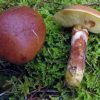
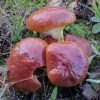

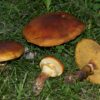
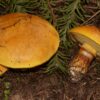
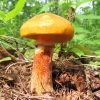
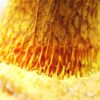
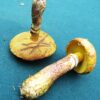
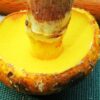
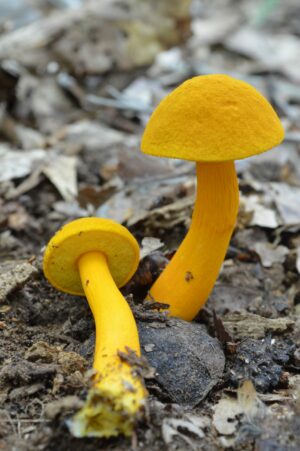
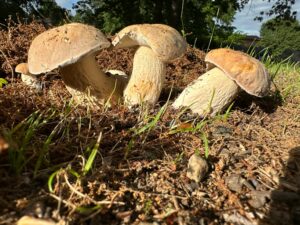

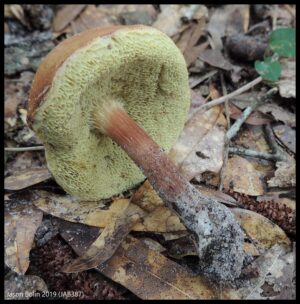
Got something to discuss?